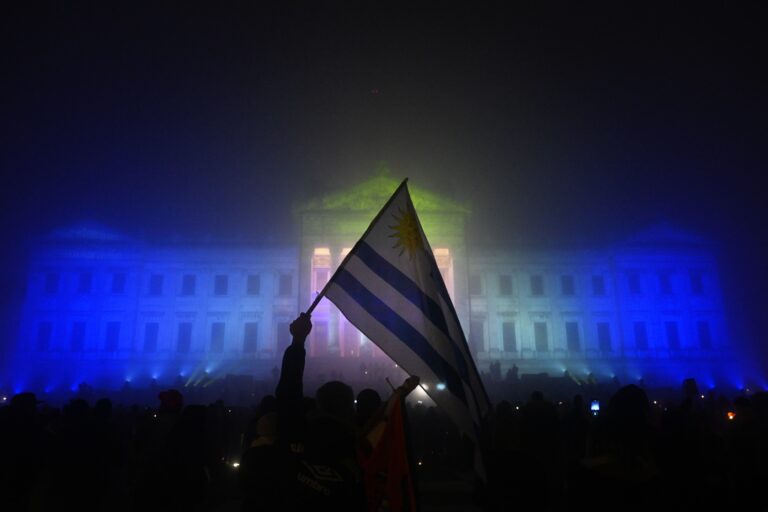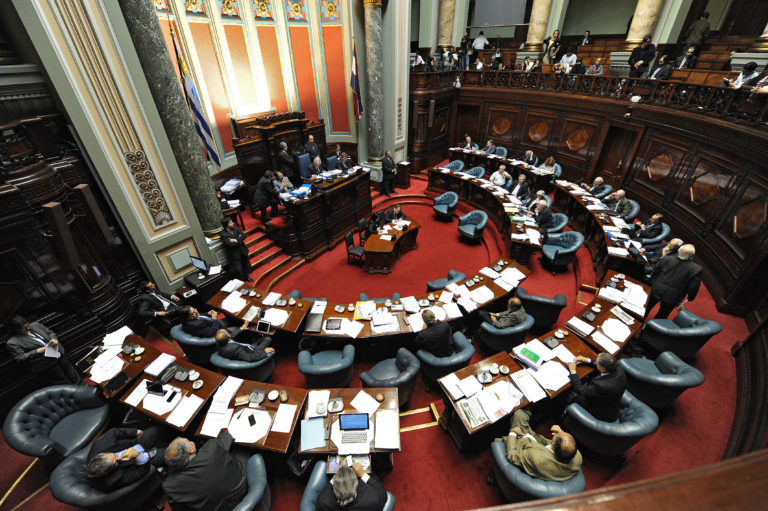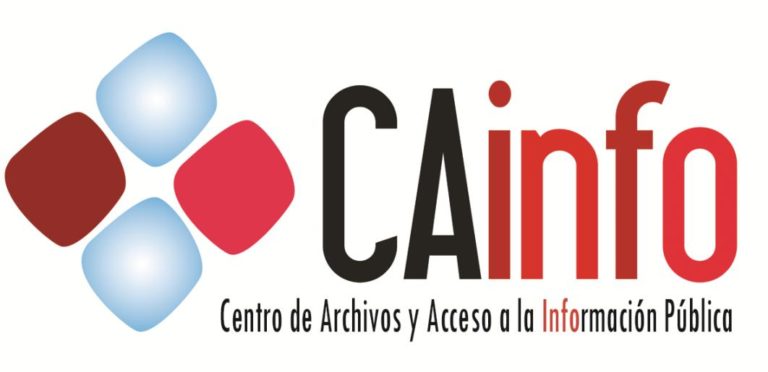(IAPA/IFEX) – The following is a 9 May 2007 IAPA press release: IAPA calls court jailing of Uruguayan journalist serious setback for press freedom MIAMI, Florida (May 9, 2007) – The Inter American Press Association (IAPA) today described as a very serious setback for freedom of the press in Uruguay a judge’s sentencing of journalist […]
(IAPA/IFEX) – The following is a 9 May 2007 IAPA press release:
IAPA calls court jailing of Uruguayan journalist serious setback for press freedom
MIAMI, Florida (May 9, 2007) – The Inter American Press Association (IAPA) today described as a very serious setback for freedom of the press in Uruguay a judge’s sentencing of journalist Gustavo Escanlar Patrone to three months’ imprisonment on a criminal libel charge.
On April 18, after the appeal in lower courts failed, the Uruguayan Supreme Court upheld the May 18, 2006 conviction of Escanlar Patrone. Under Uruguayan law libel, slander and defamation are criminal offences punishable by prison terms.
“We are not only alarmed at the district court’s sentence but now we must speak out about what we regard a much more serious precedent, the final verdict and the arguments put forward by the Supreme Court to uphold the ruling, as by handing down a prison sentence it is encouraging self-censorship by journalists and the general public in Uruguay,” declared Gonzalo Marroquín, chairman of the IAPA’s Committee on Freedom of the Press and Information.
Marroquín said that the IAPA was taken by surprise on learning of the court decision “just at a time when we are holding a conference in El Salvador with legislators, judges and President Elías Antonio Saca himself, in which we are discussing the very issue of decriminalization of libel and defamation” – an action that the Central American country took in 2004.
The Uruguayan Supreme Court ruling, Marroquín added, was “a step backwards, if one takes into account the trend towards decriminalization of libel and defamation in Latin America and in view of the reform of the Penal Code that Mexico’s President Felipe Calderón signed into law a month ago.”
Escanlar Patrone, who is currently is working at Canal 10 television in Montevideo in the satirical show “Bendita TV” (Blessed TV), was sued for libel by businessman Federico Fasano. In an interview aired by Canal 10 on January 18, 2006 in a program titled “La culpa es nuestra” (We Are to Blame), Esclanor Patrone called Fasano “a son-of-a-b. . .” when his name was mentioned by one of the show’s hosts.
In its ruling the Supreme Court held that freedom of expression in Uruguay can be limited by the courts “when its essence is denatured by the abuse of it” – when it fails to respect, among other things, “order,” “public morality,” “the reputation of others,” “the protection of national security” or “health” – and although the Court recognized that freedom of expression is a “fundamental right”, it declared that “it is not absolute” and may be limited by the state.
While the Court based its ruling on Inter-American Human Rights Court case law, it did not take into account decisions issued by that court that oppose imprisoning journalists or members of the public for exercising freedom of expression.
Marroquín, editor of the Guatemala City, Guatemala, newspaper Prensa Libre, referred specifically to legal precedents on the matter established by the Inter-American Court on August 31, 2004 – in the Ricardo Canese v. Paraguay case – in ruling that “criminal law is the most restrictive and severe means of establishing responsibilities with regard to (a certain kind of) conduct.”


